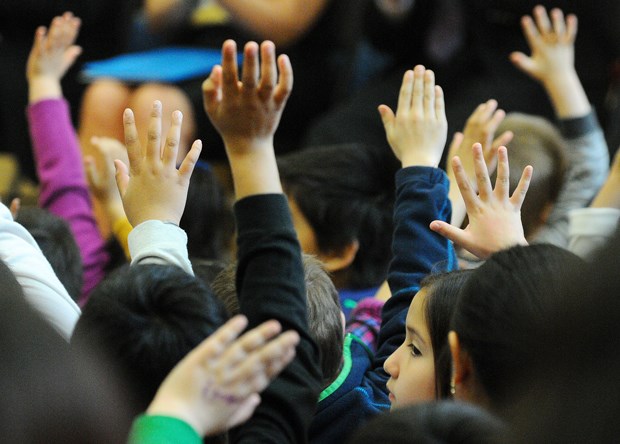A new program linking money spent at gas stations with classroom projects has fuelled outrage among North Vancouver teachers.
Both North and West Vancouver school districts recently signed up for Chevron's Fuel Your School program. The energy company is slated to contribute $1 to local schools for every 30 litres of gas bought at Chevron stations in North Vancouver and West Vancouver during November. Teachers can apply for that money to support class projects, but many North Vancouver teachers won't be applying on moral grounds, according to North Vancouver Teachers'
Association vice-president Martin Stuible.
Teachers were asked not to sign up for the Fuel Your School program in a recent assembly featuring representatives from each school in the district, according to Stuible.
Several teachers cited concerns over Chevron exerting undue influence on students.
"Even the name Fuel Your School, it's about promoting the idea of an oil product," Stuible said, adding many teachers would prefer to emphasize environmental stewardship in the classroom. "This is a big corporation which clearly, probably has ulterior motives."
One look at a Fuel Your School promotional video - in which the company is promoted in the classroom - raised eyebrows among North Vancouver teachers, said Stuible.
The program as it exists in B.C. doesn't include any advertising of Chevron in schools or any promotion through the school system.
West Vancouver schools superintendent Chris Kennedy said the program did not raise any concerns locally - a position echoed by North Vancouver schools superintendent John Lewis.
The program "represents an alignment with our values and goals," Lewis stated in a press release.
North Vancouver projects are eligible for up to $100,000 of potential funding, while West Vancouver schools could see up to $40,000.
Despite opposition from some teachers, at least 30 projects at 12 North Vancouver schools have been funded through Chevron.
The projects range from a robotics program at Dorothy Lynas elementary to a $1,294 investigation into microbes at Norgate Community elementary.
West Vancouver has 22 projects funded at 10 schools.
But taking money from Chevron relieves the province from its obligation to fund education, argued Stuible.
"When you (take the money), provincial governments can wipe their hands and walk away and not be held accountable to the fact they're under-funding our public education system," he said.
"A big part of our job action was to try to bring attention to the fact that our public education system is under-funded."
Many teachers were upset they weren't consulted prior to the program's approval, according to Stuible.
"It was never presented to us," Stuible said.
"The idea of bringing in corporate sponsorship should really be looked at by all parties."
The Surrey school district received $200,000 worth of funding for class projects when the program was first introduced to B.C. schools last year.
While there is no consensus among parents on the program, some parents definitely welcome extra funding, noted North Vancouver Parent Advisory Council chairwoman Jane Lagden Holborne.
"(Parent advisory council's) spend a lot of time and effort fundraising, and additional funding will make PAC-raised funds go further," she wrote in an email.
However, some parents are also wary of shoring up a provincial funding shortfall through corporate donations, particularly when the corporation is a petroleum company, according to Holborne.
The Surrey, Lions Bay, Bowen Island, Burnaby and Coquitlam school districts are all participating in the program this year.
Teachers who apply to the program are scheduled to be notified of their funding by Dec. 1.



